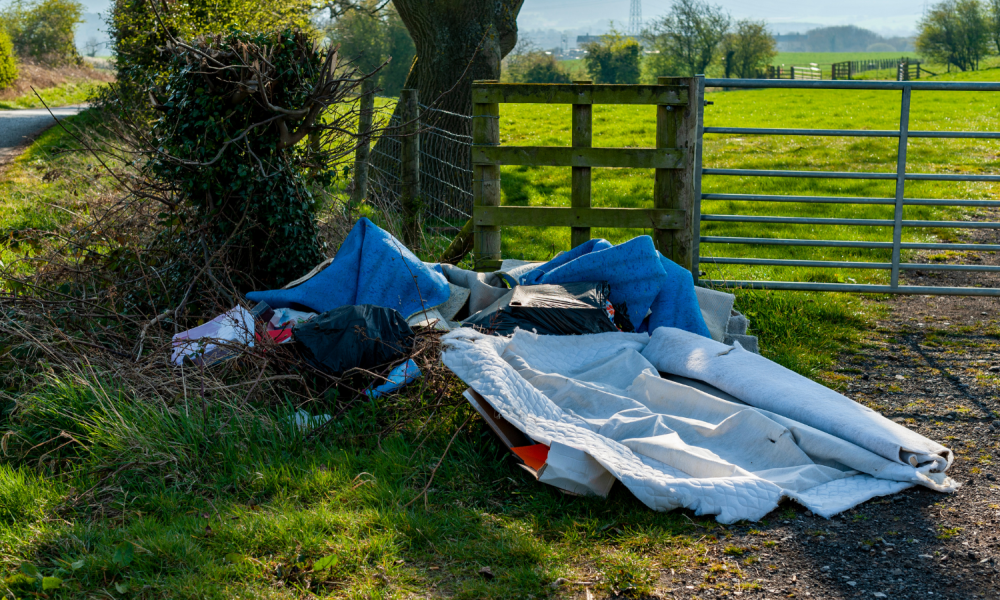New law to give local authorities powers to use CCTV to tackle fly tipping

Local authorities will soon be given powers to use CCTV and other technologies to tackle illegal dumping and littering, while also ensuring that there are robust data protection safeguards in place. While there are many litter black spots across the country, to date, local authorities’ ability to use CCTV to identify and target offenders has been restricted due to data protection regulations.
Minister of State with responsibility for Communications and Circular Economy, Ossian Smyth TD, said;
“While only a minority of citizens illegally dump or burn their waste, the impact of litter and fly-tipped waste on the environment, and often our most beautiful locations, is a blight on our communities. We need to empower local authorities, who are responsible for waste management and enforcement, to target these practices and penalise those responsible. The Circular Economy Bill, brought before the Dáil today, will finally make this possible while also protecting the privacy rights of the public.”
The Circular Economy Bill 2022 will bring in a suite of measures that puts into law many of the commitments the Government has made in the Waste Action Plan for a Circular Economy and last year’s Whole-of-Government Circular Economy Strategy. The transition to a circular economy represents a shift away from the linear ‘take, make and waste’ model, which relies on a steady supply of natural resources to create products and packaging. It also has the potential to create sustainable growth and jobs.
Minister Smyth added;
“We have to rethink the way we consume the goods and materials we use every day. Not only are we producing inordinate levels of waste, 45% of Greenhouse gas emissions come from producing those goods and materials.
“The idea of a circular economy is based on an approach where the value of products, materials and resources is maintained in the economy for as long as possible, and the generation of waste is minimised. It also embraces the concept of waste as a resource and a secondary raw material that can be reused and recycled. Through a mix of economic incentives and smarter regulation we can achieve far more sustainable patterns of production and consumption.”
Other key aspects of the Bill include:
- incentivising the use of reusable and recyclable alternatives to a range of wasteful single-use disposable packaging and other items such as single-use coffee cups.
- introducing prohibitions on exploration for and extraction of coal, lignite and oil shale.
- re-designating the existing Environment Fund as a Circular Economy Fund, which will remain ring-fenced to provide support for environmental and circular economy projects.


